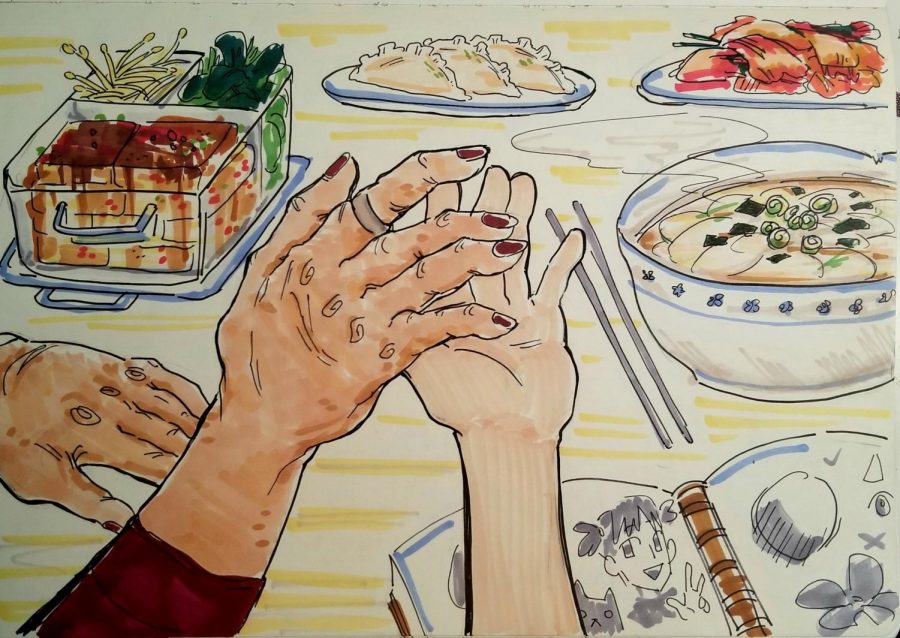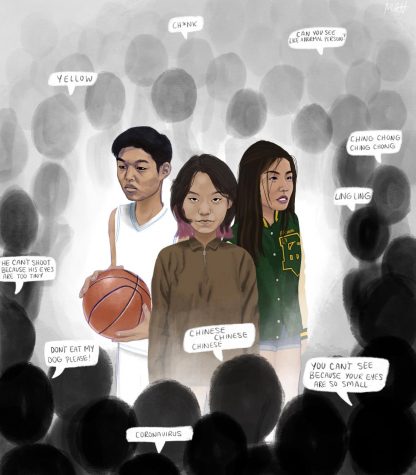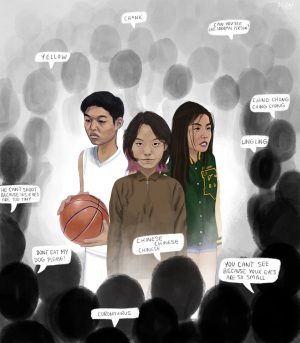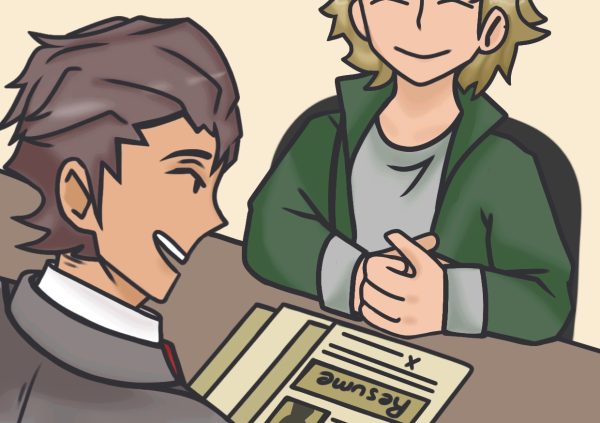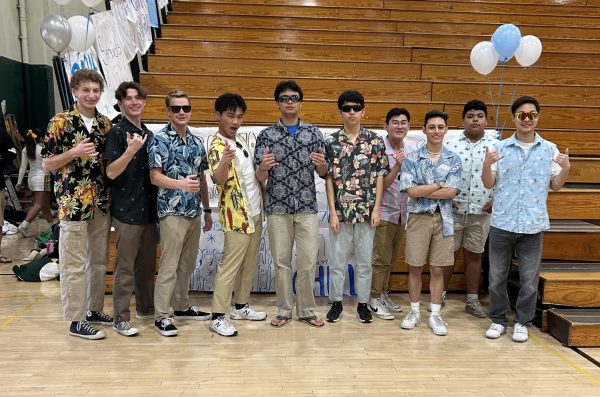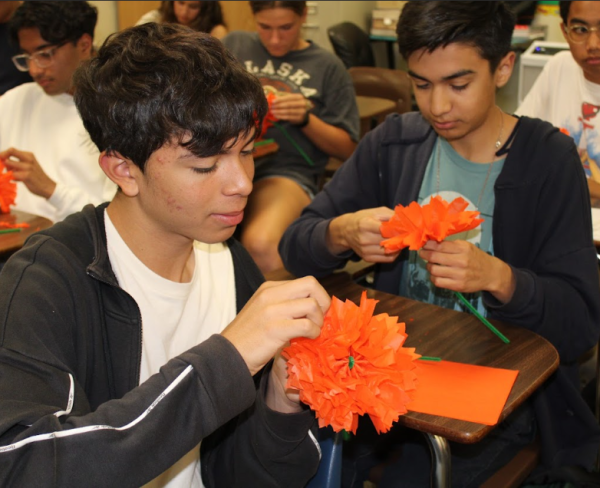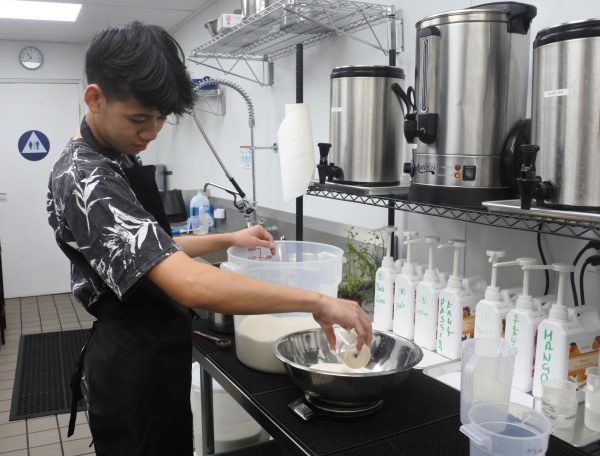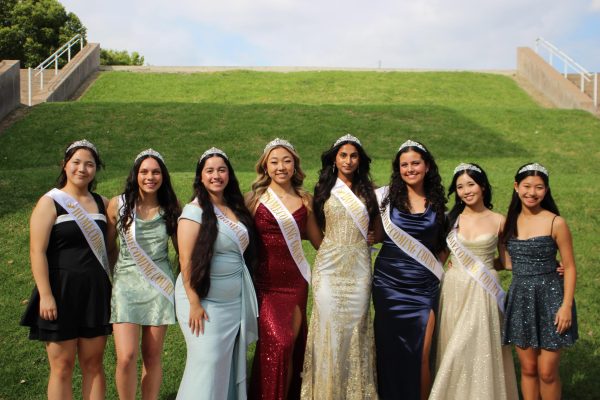From Korea to Koreatown: A Choi Family Odyssey
Wildcat Staff Writer Karis Choi shares her grandparents’ immigration story, a story she was inspired to tell as more and more stories emerge of racism-fueled attacks on Asian elders in the United States.
My grandparents and I bond over Korean dishes and story-telling about my family’s long and circuitous journey from South Korea to Southern California.
As I scroll through Instagram and TikTok I see images of Asian elders with their faces covered in blood and their bodies beaten as result of a rise in anti-Asian hate crimes in the United States.
On April 21, at a park in Orange, just a short drive from my home in Brea, an elderly couple in their 70s was physically attacked and verbally assaulted by an assailant who later “made statements to police disparaging Asians.” The attacker was ultimately charged with two felony counts of elder abuse, two felony counts of a hate crime causing injury, and “two felony hate crime enhancements.”
While the culprit was quickly caught, I was suddenly terrified of a similar scenario happening to my grandparents.
The vicious crime, and every social media post and news report covering incidents of violence targeting Asians, are reminders that Asian elders are especially vulnerable to the uptick in racism-fueled assaults, and I wonder: “Will my grandparents be the next victims?”
***
My grandparents, Keun and Jung Choi, have spent years building their lives in the U.S., and with hard work and a bit of luck, they achieved the “American Dream” of business ownership and property investments.
But it was a long and circuitous road from South Korea to San Diego.
My grandfather emigrated to Argentina from South Korea in 1965 with his parents, four brothers, and his sister when he was 16-years old. My great-grandparents aspired to buy land to farm on, which they hoped would sustain the Choi family for generations.
My family traveled by boat for two months, with nothing more than a few boxes of clothes and mementos and dreams of land-ownership. But upon arriving in Argentina, the Chois were unable to find land suitable for farming. So instead, they bought a small piece of property in a veritable jungle and built a humble grocery store.
This store was tiny and sold only a handful of food items and snacks, and the Choi family couldn’t speak Spanish for the first few months in the country, but because it was the only market in the area that was open for long hours — from 6 a.m. to 12 a.m. — it was a success.
The success, however, came with a price. My grandpa sacrificed a formal education so he could help the family keep the growing business running.
(On the decisions that he made then, my grandpa said, “The pressure and sacrifice I had to make as a young teen while helping my family has helped me become strong mentally and physically.”)
Inspired by his parent’s new prosperity, Keun Choi knew that one day he too was going to manage his own market.
Then, when my grandpa’s older brother left for college in the U.S., the family decided to also move to “the land of opportunity” as well. After three years in Argentina, it felt like the right time for them to move to the U.S. to start a more prosperous business.
However, traveling to the States was difficult at the time since U.S. visas were hard to get in Argentina for a family of seven, but with the same perseverance that brought them to the Argentinian forests halfway across the world, the Choi family prevailed when a “miracle” (as my grandpa describes it) occurred in Colombia.
As my frustrated and exhausted grandpa was looking for a payphone to call yet another company in search of visas to the States, a young man approached. My grandpa described to the man the long journey the Choi family had taken from Argentina to Colombia, searching for places that could grant the family visas to move to the U.S.
Then, this man my grandpa had just met, by chance, told him something completely unexpected: He was the Student President of Colombia University and because Colombia University was sponsored by the U.S. Embassy, he had a friend who would be able to get my grandpa and his family the proper documents for a move to the States.
“It was a miracle that I met this man on the streets, and somehow he was able to get me just what my family needed after weeks of searching for a visa,” my grandpa said.
Documents secure, my family flew to the U.S. where they settled in Koreatown, Los Angeles.
Life, at first, was cramped. The Chois — all seven of them — lived in a small two-bedroom apartment. Every member of the family — my grandpa, his parents, his brothers, and his sister — worked multiple jobs or went to school. Eventually, the clan saved enough money to purchase a small three-bedroom house, a luxury after living for years in small spaces.
My grandpa experienced more good fortune when, during a visit to Korea, a friend introduced him to my grandma, Jung. And in 1973, after a brief courtship, they married. Ten months later, my grandma moved to the U.S. to join my grandpa’s family in Koreatown.
Life in Los Angeles wasn’t as glamorous as they thought it would be. Both of my grandparents struggled to learn English while working long hours, but they got by with English-language books and frequent communication in English.
During their first few years in California, my grandpa and great-grandpa started a gardening business. They didn’t have much, just a cheap truck and basic garden supplies. But my family remained optimistic by emphasizing the importance of gratitude. In the midst of balancing full-time jobs, learning another new culture and language (their third in less than a decade), and moved from country to country to country, my grandparents felt so grateful for the opportunities and miracles that had opened up to them.
A few years later, my grandpa discovered the joy in running a business when he began to manage his parents’ shopping center after they passed away. Each ensuing endeavor — the gardening company, a restaurant, a dry cleaning business, a chain of grocery stores and shopping centers — resulted in more success. His dreams from Argentina were finally being realized.
***
Every time I hear about my grandparents’ journey from South Korea, to that small patch of land in Argentina, to L.A.’s Koreatown, and finally, to San Diego, I’m reminded of how hard work pays off through the virtue of patience. While a sliver of luck was involved (like the “miracle” in Colombia), my grandparents continue to work hard, and humbly. They embody the very qualities that we value in our citizens.
After all that they’ve been through — weeks on a boat with their belongings in boxes; building a meager shop in a jungle in a country in which they didn’t speak the language; building a life in the States in cramped quarters with another new language to learn; all while half-a-globe away from their ancestral home, apart from family and friends — they deserve the freedom to walk through their neighborhood without the fear of becoming the victims of violence solely due to their race.
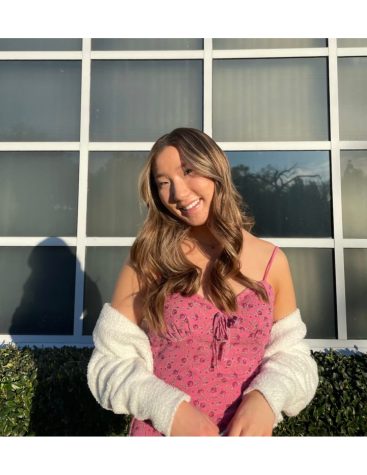
Karis Choi, junior, joined the Wildcat newspaper at the beginning of her sophomore year starting off as a photographer and staff writer and transitioning...



